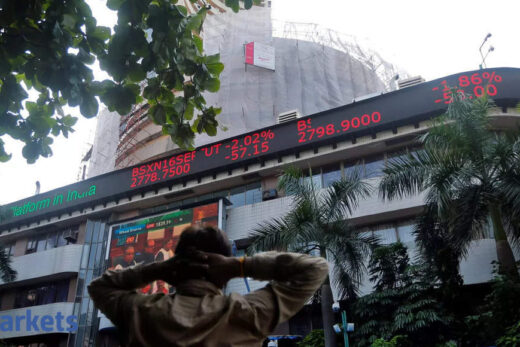After the earnings announcement, brokerages have largely expressed mixed feelings about the stock. Some have quoted price targets that show a potential downside, while a few have suggested up to 18 per cent upside. But even the bullish targets hinted that a revisit of the recent peak was unlikely, thanks to regulatory fears.
Prabhudas Lilladher said pricey valuations factor in most positives, and suggested a target of Rs 779 on the stock.
IIFL has a sell call with a target of Rs 745. “We note that the management tone on uncertainty around resumption of the 2S class has increased over time. The management also pointed to an increase in fixed charges on Tejas trains payable to Indian Railways, bringing regulatory risks to the fore once again. We reversed the EPS cut done recently as we factor in the withdrawal of 50 per cent revenue share on convenience fee income but our EPS estimates are unchanged from early October levels,” IIFL said.
Down 35 per cent from than its record high of Rs 1,278.60, the scrip traded at Rs 834.50 piece on Monday. Some optimistic targets such as Rs 985 by IDBI Capital and Rs 943 by Dalal & Broacha Stock Broking pointed to an upside of up to 18 per cent.
At 65 times 1-year forward PE, the stock does not adequately capture the regulatory risk, the brokerage said.
Prabhudas Lilladher said though it had increased its ticketing estimates by 4.8 per cent in FY23 and 5 per cent in FY24, respectively, sustenance was under a cloud. Some rollback was likely as travellers need not reserve seats in 2nd class compartments of 23 special trains. “Our EPS CAGR of 34 per cent over FY22-FY24 factors in most positives viz; higher 2S volume delta, Rail Neer expansion and catering price hike leaving little room for earnings surprise and consequent re-rating. Further, events like recent policy flip flop on convenience fee share with Indian Railways can result in valuation overhang,” the brokerage said.
The IRCTC management had said in a conference call it has been given the autonomy to charge or change convenience fees. This was in the context of the recent announcement the railways made that IRCTC would share 50 per cent convenience fees with it. But it withdrew the demand later amid strong reaction from the market.
The management said if the decision to split revenue had not been withdrawn, it would have taken a price hike or removed the subsidised UPI rates or taken other measures such as reducing operating costs.
There was no comment on whether the ministry of railways will retain 2S reservations after Covid; 40 per cent of booking reservations come from the 2S class.
The company reported a 386 per cent year-on-year (YoY) rise in net profit at Rs 159 crore for the September quarter, on a 357.3 per cent YoY surge in revenues at Rs 404.9 crore.
Analysts noted that while internet ticketing continued to perform well in the post-Covid period, Rail Neer, food & beverages and tourism segments were still struggling to recover.
Food & beverages has not recovered as the ministry was reluctant to start serving fresh food on trains because of Covid concerns and so was still offering ready-to-eat meals, said Dalal & Broacha Stock Broking. Rail Neer volumes have failed to pick up as expected mainly due to delay in investments in manufacturing units due to a U-shaped recovery. Tourism was picking up slowly and gradually and it would take a few quarters before it even reached the pre-Covid levels, said the broker. “Given the monopoly nature of the business, the market’s acceptability of rich valuations and IRCTC’s autonomy for service charges, we believe that the company can command a much higher multiple than our initial target of 40 times. However, this higher multiple should be discounted given the risk of malign (to minority shareholders) intervention from parent (as in the most recent and sudden case of 50-50 convenience charges split debacle) and its PSU status,” Dalal & Baroacha added.



